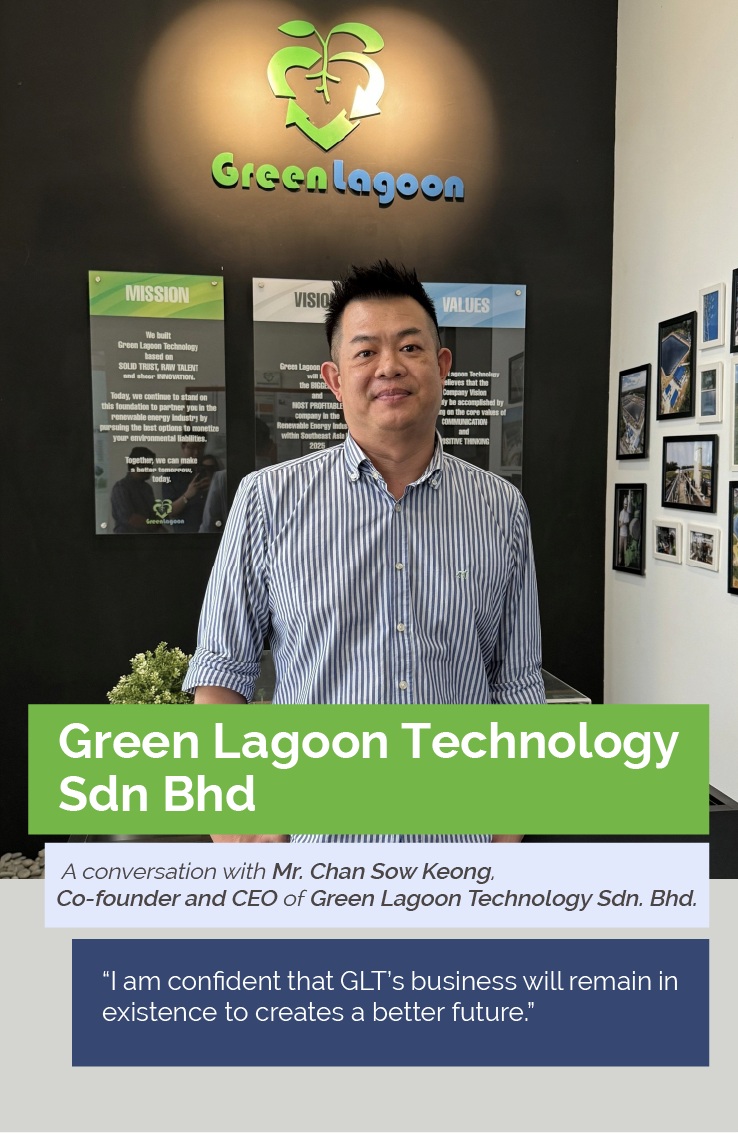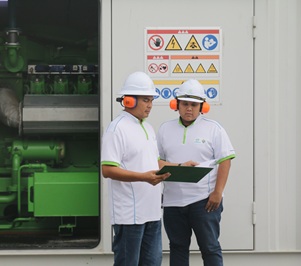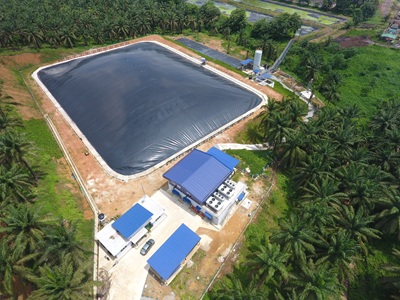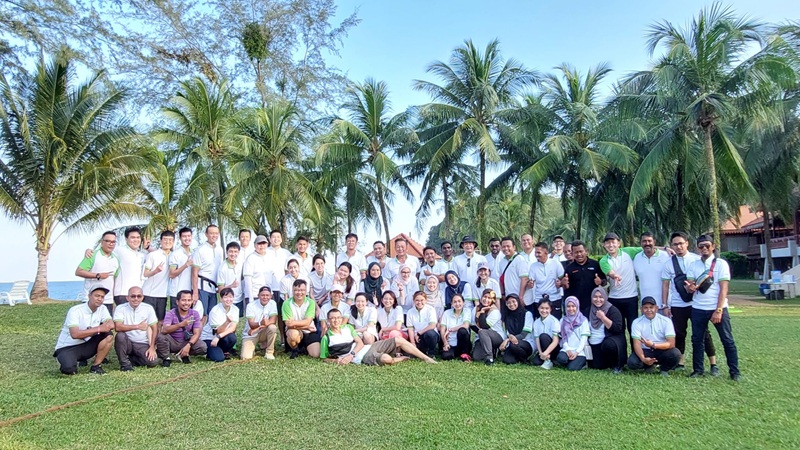
Can you share the background of the company?
Green Lagoon Technology or more commonly known as GLT, was founded by me Chan Sow Keong together with 2 other directors namely Mr. Raymond Cheah and Mr. Cheh Koon Chee. We have known each other for more than 20 years and are engineers by profession. We were ex-colleague in a subsidiary of a USA company that focus on carbon emissions reduction in Malaysia.
In the company, we learned about how greenhouse gas emission reductions generated from palm oil mills and livestock farms. From there, we have developed the passion in mitigating global warming and climate change to reduce carbon footprint in Malaysia.
In May 2010, we established GLT to focus on Clean Development Mechanism projects for the palm oil mill industry. We then expanded our business model to provide solutions for palm oil mill industry, monetizing the biogas released from palm oil milling by converting it into renewable energy in the form of electricity, which will be used by the palm oil mill itself or to be sold to the national grid under the Feed-in-Tariff program.
What is your company strength and what makes your product unique?
Our business in the industry is niche. We engaged in Engineering, Procurement, Construction and Commissioning (EPCC), operate and maintenance of biogas power plant for agriculture, palm oil mill and food processing industries.
Our projects not only directly eliminate methane through efficient combustion but also replace fossil fuel energy from the power that is generated from biogas engines.
Most of our biogas power plant projects are developed in rural areas within palm oil estates in Kedah, Penang, Perak, Pahang, Johor and Selangor. GLT creates working opportunities for the locals, providing them technical jobs which could improve the local economies.
We continuously seek opportunity in this industry which require our expertise from innovative technology to help them manage their waste more effectively by converting the waste into renewable energy and gain profit. Our aim is to create a positive impact on society and the environment.
 |
|
“Our aim is to create a positive impact on society and the environment.’’
|
How do you advertise your business?
We have established our branding through excellent track record of biogas power plant development projects in Malaysia and Indonesia.
We usually publish our project progress, project success stories and media coverage through our website at www.glt.my as well as social media in LinkedIn and Facebook as it enhances our outreach to broader audience more effectively with optimum cost.
We are able to connect with relevant industry players, strengthening our networking with potential clients, industry experts and technology providers that could lead us to potential collaboration and innovation opportunities.
We do expand our networking as well through international summit, forum, conference and exhibitions as well as collaboration with other public listed organisations in related fields. We are currently in talks discussions with some European companies that could potentially expand our presence to other continents through expertise collaboration.
In addition, i also will accept interview invitations on behalf of GLT to promote and increase our company reputation to reach wider audience.
 |
|
| One of the completed project by GLT in Rompin | |
What are the challenges that you encountered in this business?
When we first started, the palm oil millers, financial institutions, and regulatory bodies, have limited knowledge about biogas. We encountered hardship during our introduction of biogas-to-power project.
Biogas-to-power business is a capital-intensive venture. The high upfront costs for building biogas plant, purchasing equipment and engine, ensuring compliance with regulations could be daunting. The main challenge that we encounter is certainly securing adequate funding. Finding private investors, financiers and applying Government grants to secure our project was extremely difficult when there was no project reference that we could demonstrate to them.
The other challenge is to ensure a reliable and sustainable feedstock supply from the palm oil millers or local farm owners that we collaborate with. The feedstock availability is one of the main factors that affect the project feasibility given the location, economic viability and potential return on investment.
The success of our biogas production depends heavily on the availability and consistency of the organic materials, such as palm oil mill effluent or animal manure. Other than feedstock availability, the quality is also crucial, due to the direct impact to the biogas production output, and profitability.
Increase costing is also one of the common challenges as it would affect our profitability. We overcome this by continuous improvement on operation efficiency and by exploring latest technologies that able to reduce the cost or improve profitability by creating new revenue streams from available resources.
|
“Reliability helps us build trust and confident to maintain a long term relationships with customers.’’
|
How do you engage with your customers and keep them loyal with your products and services?
GLT provide customized biogas-to-power solutions based on our customers requirements, be it agricultural, industrial or municipal applications.
 |
|
This ensures our customers receive a system that suitable to their operational and regulatory requirements. We emphasize the usage of high technology and quality equipment to ensure efficient biogas production. Our innovative engineers stay updated with the latest advancements in biogas technology. It allows them to offer cutting-edge solutions and system design that meet evolving market demands. This reliability helps us build trust and confident to maintain a long term relationships with customers. Additionally, GLT offers end-to-end support, from initial consultation and system design, installation, biogas plant operation and management to ongoing maintenance. This holistic approach ensures our customers feel supported throughout the process. How do you ensure business sustainability and what are your future plans for GLT? |
The effort in reducing carbon footprint be it locally or globally, is a lifelong initiative. I am confident that GLT’s business will remain in existence to creates a better future. We are grooming our potential staffs to be our successor, who will continue our vision and effort for next generation. If you have one piece of advice for new entrepreneur, what would it be? This industry relies heavily on collaboration, from securing reliable feedstock supply, navigating regulatory environment, to gaining support from technology provider or industry experts. Building strong relationships with stakeholders, suppliers and authorities is important. Being a new player in the industry, it is vital to work with industry experts and consultants. Leverage on their knowledge and experience to overcome challenges and optimise operations. Always keep an open mind to receive feedback and be flexible to adjust business model based on insights. Flexibility can lead to innovative solutions and could improve chances of success. |




